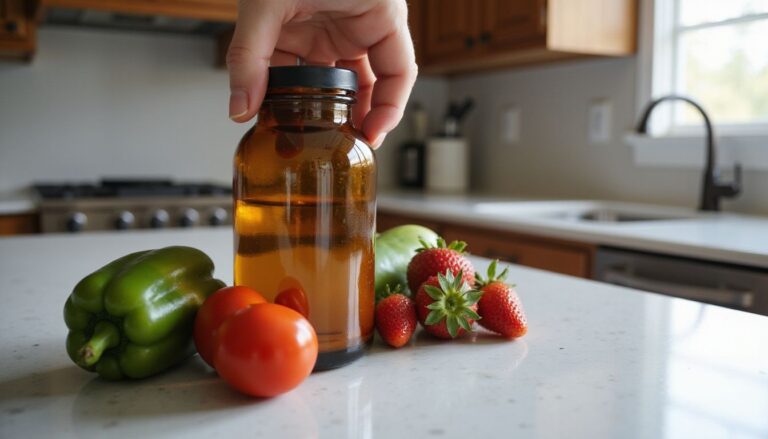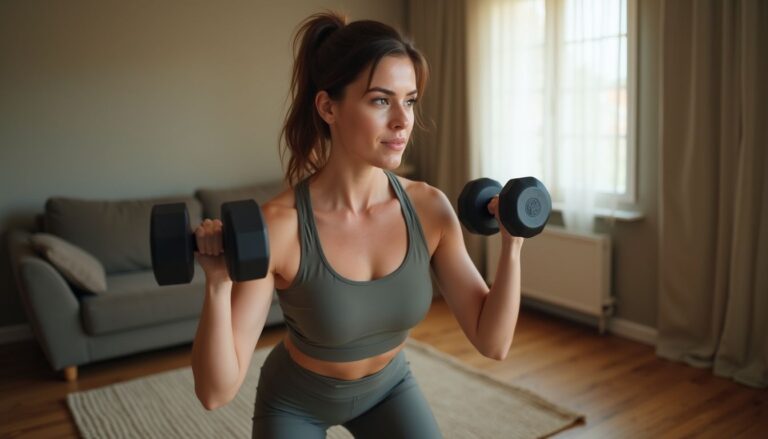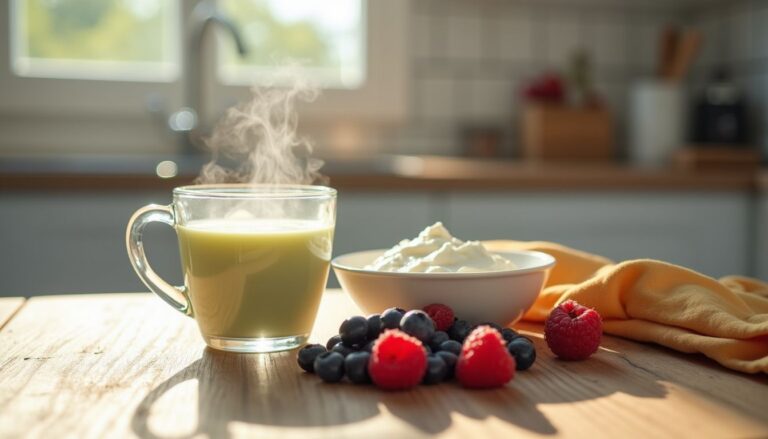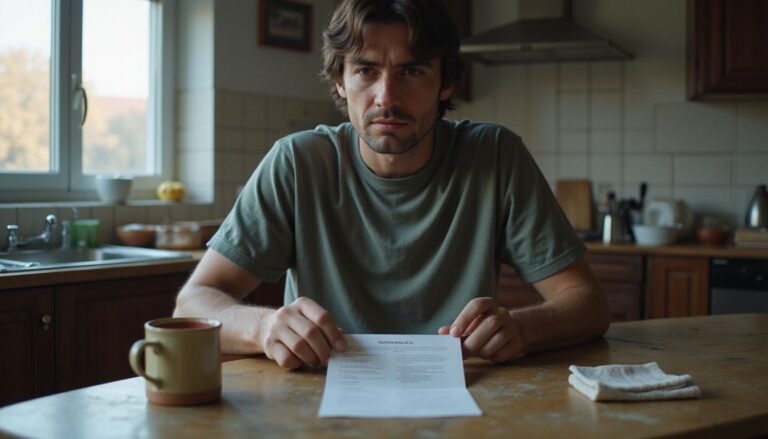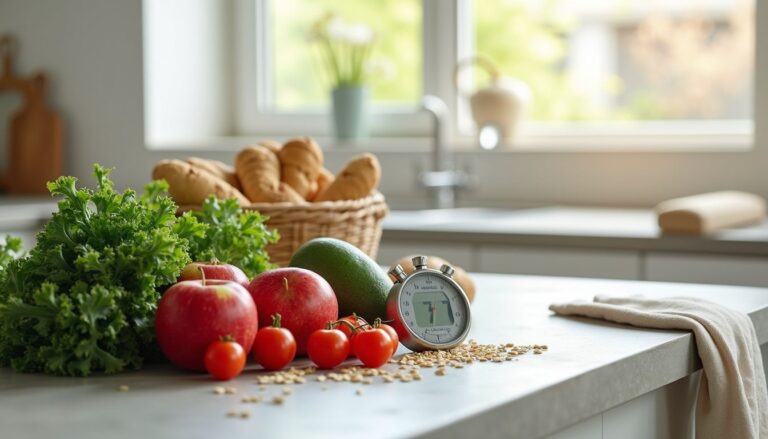Top 5 Weight Loss Drinks With Zero Calories: Lose Weight With These Fat-Burning Beverages
Our Nutrition Assistant AI Suite will transform your body. You will lose fat, get toned, and build muscle. Gain confidence and optimal health.
If losing extra weight feels hard, small daily choices can help. Swapping high-calorie drinks for options with zero calories is one simple win for weight loss. Research suggests that the right weight loss drink can help you feel full, cut sugar, and support your metabolism.
This guide explains how five popular fat burning beverages fit into a healthy lifestyle. You will see how they can help reduce calorie intake and support energy. Explore which drinks for weight loss may suit your routine, then pick one or two to try this week.
Key Takeaways
- Drinking water before meals can reduce calorie intake and support weight loss. One 2015 trial found about 13.6 percent greater weight loss compared with diet beverages.
- Green tea provides EGCG, a catechin, plus caffeine. Together they increase calorie burn and fat oxidation for a few hours after drinking two cups.
- Black coffee is nearly calorie-free when you skip sugar and cream. Caffeine can raise metabolic rate and enhance fat burning during exercise.
- Apple cider vinegar diluted in water may suppress appetite and improve post-meal and fasting blood glucose. Some people eat 200 to 275 fewer calories per day in studies.
- Herbal teas, including ginger and peppermint, are zero-calorie choices. They can ease bloating, aid digestion, and may help curb appetite.
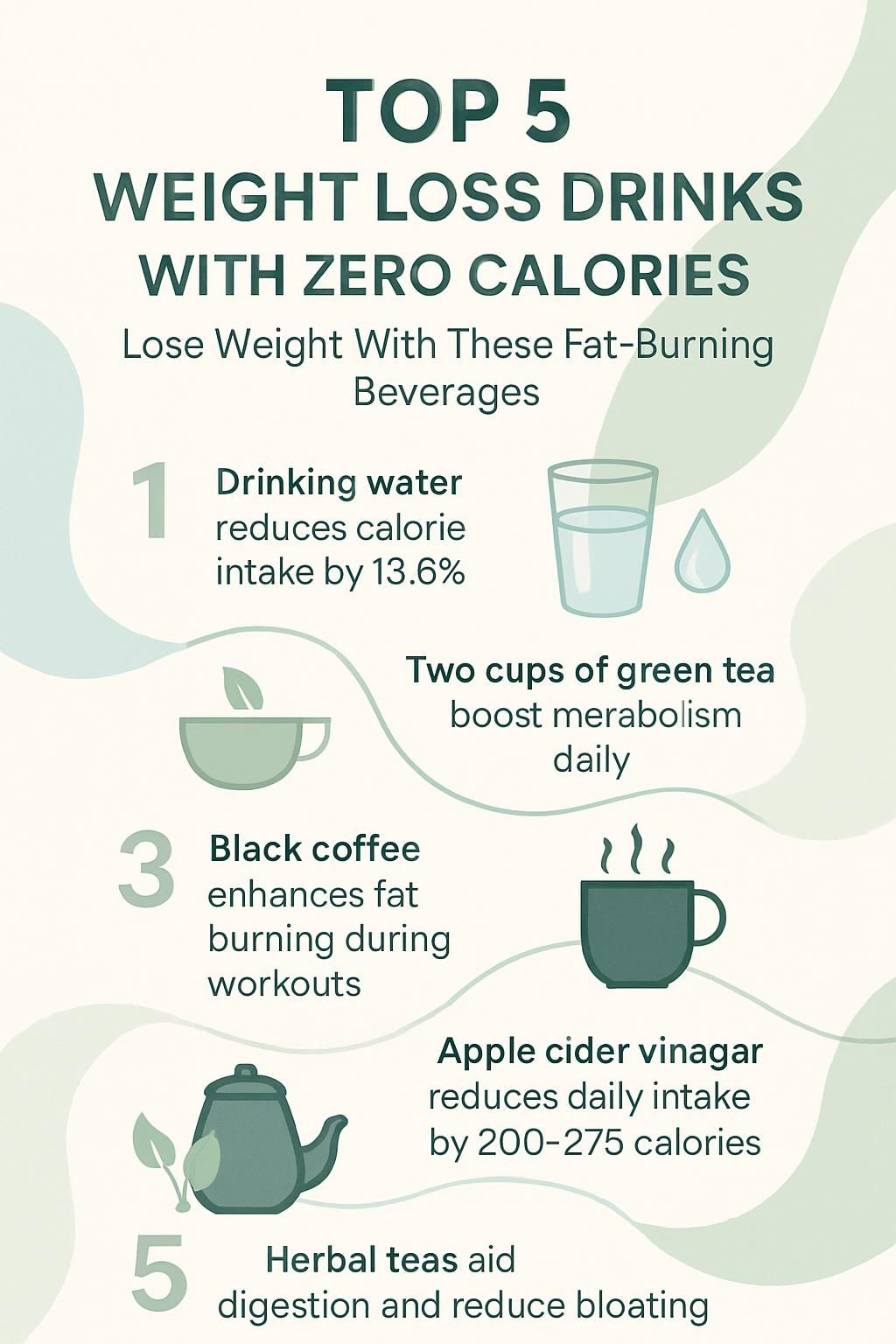
Why Zero-Calorie Drinks Help You Lose Weight

Choosing zero-calorie beverages helps you burn fat while keeping total energy intake in check. These drinks support weight management and fit well in a balanced diet.
How do zero-calorie drinks boost metabolism?
Zero-calorie drinks such as water can nudge your metabolism upward for a short period. In a small 2014 study, drinking 500 milliliters of water increased energy expenditure by about 20 to 30 percent for up to 90 minutes.
Cold water may have a slightly stronger effect, since your body uses a few extra calories to warm it. Some research suggests people with obesity or insulin resistance may see a modest rise in calorie burn after drinking water.
Water may also trigger the sympathetic nervous system, which can elevate heart rate and support fat use. One 2023 study tied warm water after meals to reductions in body weight and BMI when consumed with each meal.
These small metabolic boosts add up across the day. Combined with smart eating, zero-calorie drinks can support gradual fat loss.
How do zero-calorie drinks reduce calorie intake?
Replacing sugary drinks with zero-calorie options lowers your daily calories right away. For example, a 12-ounce can of regular soda contains about 150 calories and roughly 39 to 41 grams of sugar. Swapping that soda for water avoids the sugar and the calories.
Long-term studies show that replacing one sugary drink per day with water links to greater weight loss and lower obesity risk over time. Modeling research suggests this change alone could reduce weight gain over several years.
Many fruit juices have similar calories to soda. If you choose juice, pick 100 percent juice without added sweetener or dilute it with water to reduce the calorie count.
In a 2015 trial, people who drank 250 milliliters of water after lunch, instead of diet drinks, lost about 13.6 percent more weight. This simple swap can improve appetite control and reduce snacking between meals.
How do zero-calorie drinks promote satiety?
Two glasses of water before a meal help you feel full sooner. In one 8-week study with 50 women, drinking 500 milliliters of water before meals reduced body weight, body fat, BMI, and reported appetite.
Water acts like a natural appetite suppressant by filling the stomach and dampening hunger signals. Other low-calorie options can also support fullness.
- Vegetable juice with pulp adds dietary fiber, which slows digestion and helps control hunger.
- Unsweetened almond milk is lower in calories than cow’s milk, but it has less protein. Skim milk or soy milk provide more protein with fewer calories than whole milk.
- Homemade smoothies with fruit plus skim or almond milk are often lower in sugar than store-bought versions that use syrups or honey.
Using these choices to manage hunger makes it easier to control portions and stick with your plan.
Why Is Water Important for Weight Loss?
Water is the simplest weight loss drink to use every day. Drinking it before meals can blunt hunger and help you manage how many calories you eat.
What are the benefits of staying hydrated?
Hydration supports muscle and joint function during activity, which helps prevent cramps and fatigue. When you are well hydrated, your heart, kidneys, and brain work more efficiently.
Guidance from the Academy of Nutrition and Dietetics suggests women need about 11.5 cups of water per day from food and drinks. About 9 cups usually come from beverages like water, sparkling water, or herbal tea. Men need about 15.5 cups daily, with around 13 cups from beverages.
Fluids also aid kidney function and bowel regularity, which helps reduce constipation and bloating. Signs of mild dehydration include dry skin, dark urine, headaches, and low energy.
If you exercise often or live in a hot climate, plan your fluid intake around activity. Arriving hydrated makes workouts feel easier and supports fat-burning goals.
How does water aid in weight loss?
Drinking water before meals may reduce appetite and total calories eaten. A 2018 study found this strategy especially helpful for people who track their intake on a healthy diet.
Water is required for lipolysis, the process that breaks down stored fat. Animal research in 2016 showed that a higher water intake increased fat loss by supporting this process.
Switching water for high-calorie drinks often leads to the most success. A 2019 systematic review found that replacing sugary drinks with water was linked to losses ranging from 0.4 to 8.8 kilograms, with an average near 5 percent of starting weight over time.
Even small changes matter. One study from 2013 suggested that adding a single extra cup of water daily was tied to slightly less long-term weight gain. Water does not affect blood sugar or insulin, and it adds no carbohydrates or sugar.
If you want antioxidants as well, green tea is a smart next choice.
What Makes Green Tea a Great Weight Loss Drink?
Green tea contains compounds that support energy use and weight management. Green tea extract is rich in antioxidants that may help your body burn more calories.
What antioxidants and catechins are in green tea?
Green tea is a strong source of antioxidants, which protect your cells from damage. Its key antioxidants are catechins, a group of plant compounds with antioxidant properties.
The most studied catechin is EGCG, short for epigallocatechin gallate. Studies suggest EGCG supports a small increase in calorie burn and fat oxidation. These effects are strongest when combined with caffeine.
Some trials show that routine tea consumption or green tea extract can reduce body weight and body fat percentage. Brew strength and time affect catechin levels. Powder drink mixes or ready to drink options can be convenient, but watch for added sugar.
In my own routine, swapping an iced coffee loaded with syrup for unsweetened matcha with plant milk kept the taste I like with fewer calories.
How does green tea boost metabolism?
Green tea raises energy expenditure through caffeine and catechins. Caffeine increases the calories you burn for a few hours after drinking. Catechins appear to support fat oxidation, which means your body uses more fat for fuel.
Two cups per day can produce a modest thermogenic effect, peaking within a few hours. The effect is not huge, but it can help over time when paired with a healthy diet.
Some people also report reduced hunger after green tea, possibly due to changes in appetite hormones like ghrelin, which helps control hunger and fullness.
Choose unsweetened versions to keep the calorie count near zero. That way you get caffeine, vitamin C traces, and EGCG without added sugar.
How Does Black Coffee Help Burn Fat?
Black coffee is almost calorie-free and can boost energy before exercise. It may also help raise your metabolic rate, which supports fat burning.
Why is black coffee calorie-free and energizing?
Plain black coffee has very few calories, typically 2 to 5 per 8-ounce cup. Without sugar, milk, or cream, you avoid added sugars and fats. This makes black coffee a useful choice for weight-loss plans or keto diets.
Caffeine is a stimulant that increases alertness and focus. Many people enjoy a cup before work or workouts for an energy lift. Coffee also contains antioxidants, which support general health.
How does black coffee enhance fat burning during workouts?
Caffeine increases fat oxidation during exercise, so your body uses more stored fat as fuel. It may also improve endurance and perceived effort, allowing longer or more intense sessions.
Since black coffee adds almost no calories, it fits neatly into a calorie deficit. A simple pre-workout cup 30 to 60 minutes before training can help you push harder. That extra effort can raise total energy expenditure over time.
What Are the Benefits of Apple Cider Vinegar Mixed with Water?
Apple cider vinegar, often called ACV, mixed with water is a popular zero-calorie drink for weight management. Early research points to appetite and blood sugar benefits, though results vary.
How does apple cider vinegar suppress appetite?
Mixing 1 to 2 tablespoons of ACV with water before meals may help you feel full longer. Acetic acid, the main active ingredient, can slow stomach emptying. This delay supports satiety and may reduce how much you eat.
In studies, people who took vinegar before high-carbohydrate meals consumed about 200 to 275 fewer calories per day. The effect tends to be stronger when taken right before eating.
Start with 1 teaspoon in a large glass of water to check tolerance. Limit total intake to 1 to 2 tablespoons per day and use a straw to protect tooth enamel. Do not take it undiluted, since it can irritate your throat or stomach.
How does it help regulate blood sugar levels?
Apple cider vinegar mixed with water may improve post-meal blood glucose control. Acetic acid seems to increase insulin sensitivity, which helps your body handle carbohydrate spikes.
Using 1 to 2 tablespoons of vinegar diluted in water before meals has been shown to lower postprandial blood sugar. Some studies also report decreases in fasting blood glucose over time.
People with prediabetes or insulin resistance may see the most benefit. ACV should not replace prescribed medication. If you have diabetes, kidney disease, or take medicines that affect potassium, talk with your clinician before using vinegar regularly.
How Can Herbal Teas Support Weight Loss?
Herbal teas such as ginger and peppermint are caffeine-free and calorie-free. They can soothe the stomach, reduce bloating, and help you stay on track between meals.
How does ginger tea support digestion and reduce bloating?
Ginger tea can speed stomach emptying and reduce feelings of fullness. Gingerol, an active compound in ginger, has anti-inflammatory effects that may ease indigestion and nausea.
This warm, spicy tea also supports gut motility and healthy circulation. Choose unsweetened ginger tea to avoid added calories and keep benefits focused on digestion.
How does peppermint tea curb appetite?
Peppermint’s scent and flavor can calm the digestive tract and may reduce appetite for some people. A cup of unsweetened peppermint tea adds zero calories and can be a helpful pre-meal habit.
Many people find an evening cup helps manage cravings and late-night snacking. If you want a satisfying alternative to alcohol or dessert, peppermint tea can offer a soothing, low-calorie choice.
How to Add These Drinks to Your Daily Routine
Start your morning with black coffee or herbal tea to support energy. Use water, green tea, or an ACV mix before meals to help reduce the number of calories you eat.
When are the best times to drink these beverages?
- Right after waking: drink water to rehydrate and prime your metabolism.
- Before meals and snacks: have a glass of water to boost fullness and reduce intake.
- Pre-workout: drink black coffee or green tea 30 to 60 minutes before training.
- Morning or early afternoon: choose green tea for caffeine plus catechins.
- Right before meals: take diluted ACV to support blood sugar control and satiety1.
- Anytime: sip caffeine-free peppermint or ginger tea to aid digestion and manage cravings.
Avoid caffeinated drinks late in the day so your sleep is not disrupted.
1 Reference: Johnston CS et al., Vinegar ingestion at mealtime reduced fasting blood glucose concentrations in healthy adults at risk for type 2 diabetes, Journal of Functional Foods, 2012.
How to combine these drinks with a healthy diet?
Pair zero-calorie drinks with meals built around fruits, vegetables, lean proteins, and whole grains. Replace soda or high-calorie specialty coffees with water, tea, or black coffee.
- Skip sugar, cream, and sweet mixers to keep the calorie count low.
- If you enjoy juice, choose 100 percent juice and dilute with water.
- Pick low-sodium vegetable juices with pulp for extra fiber.
- Use calorie-free drinks alongside protein-rich foods to improve fullness.
Track total calorie intake from both food and beverages to see patterns. If you use meal replacement shakes such as Almased, work them into a balanced plan and monitor your response.
Additional Tips for Successful Weight Loss
Choose drinks that support a healthy lifestyle and avoid hidden calories. Small, steady changes make progress easier to maintain.
Why is regular exercise important?
Exercise burns calories and supports lean muscle. More muscle helps keep your metabolism higher, which supports long-term weight management.
Hydrate before, during, and after workouts to prevent cramps and fatigue. Good hydration keeps joints moving smoothly, so you can stay consistent with activity. It also benefits heart health as you improve fitness.
Pairing regular workouts with zero-calorie drinks, like water or unsweetened black tea, can make appetite easier to manage and training sessions feel stronger.
How to avoid sugary and high-calorie drinks?
Skip soda and sweet cocktails to reduce your daily calories. A single margarita can add more than 200 calories. Diet soda is not a free pass if you replace those calories elsewhere.
Choose water, herbal teas, kombucha without added sugars, or black coffee. Specialty coffees often reach 200 to 300 calories per cup. To cut that number, use sugar-free syrups, skim milk, and no whipped cream.
Read nutrition facts on energy drinks and juices for sugar content. Many mocktails and fruit juices are high in sugar unless you dilute them or pick unsweetened options.
Conclusion
Choosing zero-calorie drinks, such as water, green tea, and black coffee, can support weight loss in several ways. These swaps lower your calorie intake without losing hydration or taste.
Water before meals helps you feel full, which can reduce the number of calories you eat. Green tea and black coffee bring antioxidants and a small metabolism boost from caffeine and catechins. Herbal teas like ginger and peppermint support digestion and may reduce cravings.
Use these beverages daily with a balanced diet and steady exercise. If you have diabetes, take medications, or have digestive issues, talk with a healthcare professional before making big changes. Small, consistent choices with your beverage routine can help you burn fat and meet your weight management goals.
FAQs
1. What are the top zero-calorie drinks that support overall weight loss?
Water, black coffee, unsweetened green tea, herbal teas like peppermint or chamomile, and sparkling water are leading choices for fat-burning beverages with zero calories. These options help manage calorie intake and can be part of a combination of factors supporting healthy weight management.
2. How does carnitine in some drinks affect fat burning?
Carnitine is an amino acid found in certain supplements and energy drinks. Some studies suggest it may assist the body in using fat for energy during exercise; however, evidence on its effectiveness for overall weight loss remains mixed. Always review health information from credible sources before adding new supplements to your routine.
3. Are there any health risks linked to drinking only zero-calorie beverages for weight loss?
Relying solely on zero-calorie drinks without balanced nutrition can lead to nutrient deficiencies or other health risks over time. It is important to use these beverages as part of a broader approach that includes proper diet and physical activity.
4. Where can I find reliable health information about these fat-burning beverages?
Trusted medical websites such as Mayo Clinic or government resources like the Centers for Disease Control provide up-to-date health information about safe beverage choices and their role in a combination of factors affecting weight control.
Summary: Zero-calorie drinks such as water, black coffee, green tea, herbal teas, and sparkling water offer practical support for those seeking overall weight loss when combined with healthy habits. Carnitine may play a role but should be used cautiously due to limited evidence regarding its benefits and potential health risks if misused. Reliable sources ensure you make informed decisions about your diet and beverage choices.


